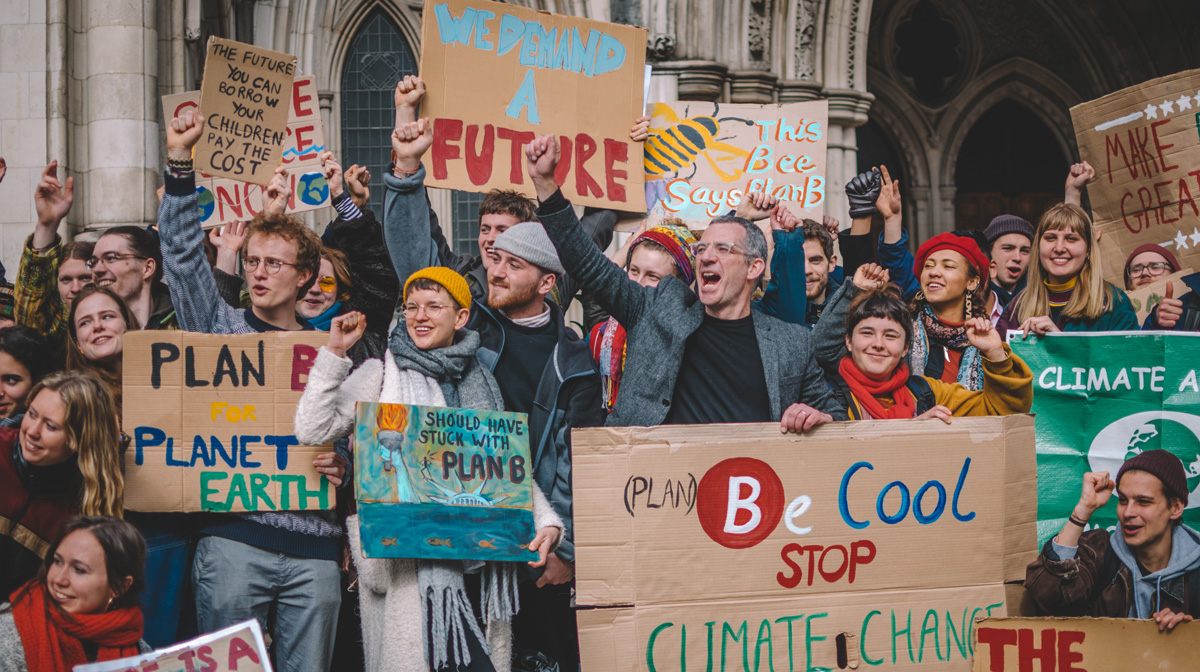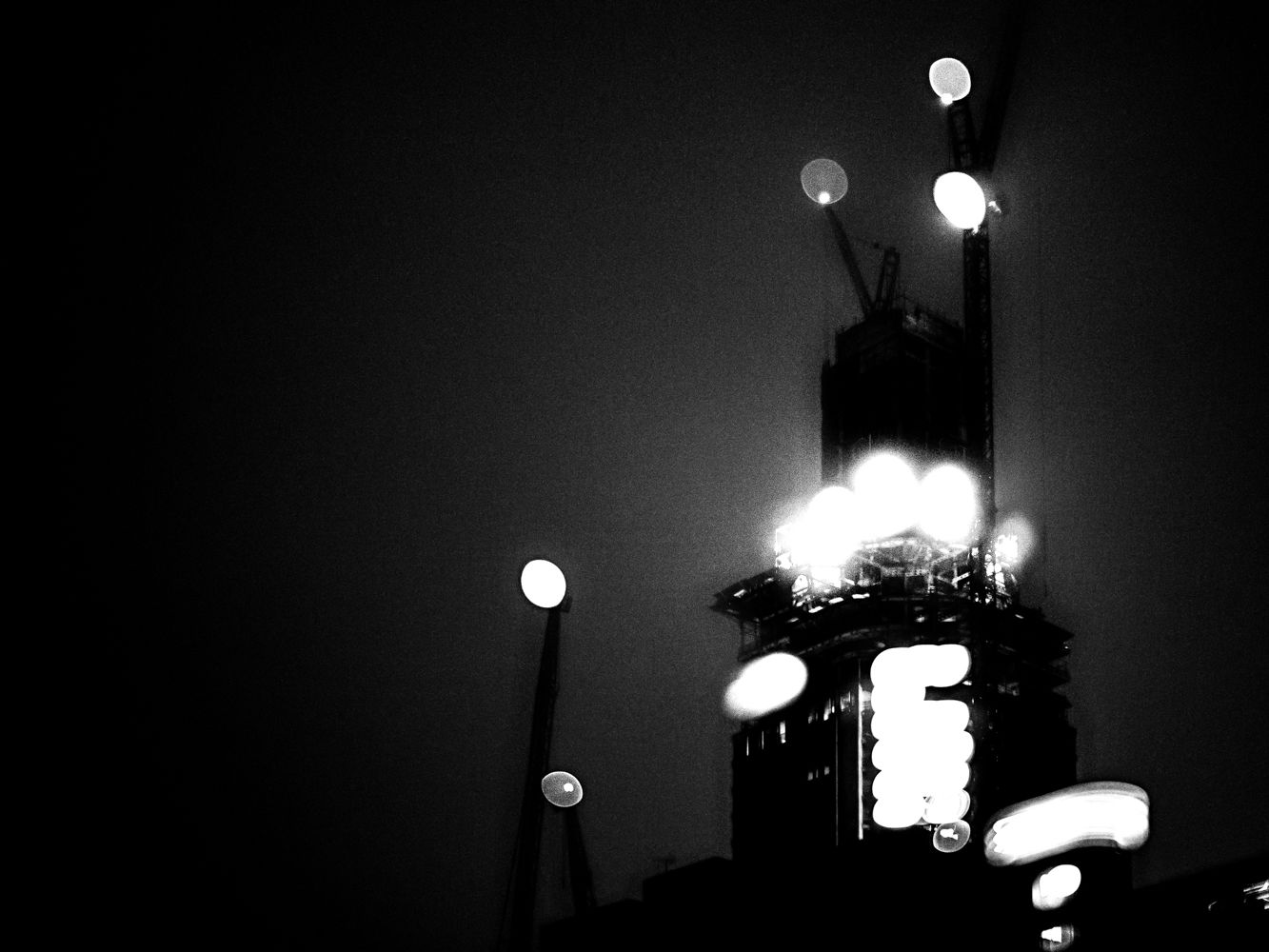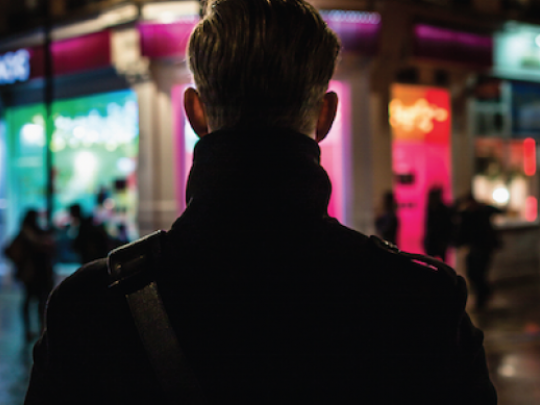The planned expansion of Heathrow Airport, in London, hasn’t gone without opposition from certain organisations.
Plan B, a charity established to support strategic legal action against climate change, has begun a legal proceeding against the expansion. Tim Crosland, director of the group, reported that on the 11 March, the UK Government was taken to court over its “reckless” plans to expand Heathrow Airport. The evidence was heard in the Royal Courts of Justice in central London and lasted over 10 days.
Plan B’s reports indicate that, in 2008, the Climate Change Act set out a target based on the belief that limiting global warming to 2 ̊C would be enough to avoid the worst impacts of climate change. Since then, the situation has subsequently deteriorated and in 2015, governments around the world adopted the Paris Agreement committing them to limiting warming to ‘well below’ 2 ̊C while aiming for a 1.5 ̊C limit.
‘In October 2016 and January 2018, Business Secretary, Greg Clark, took a decision to keep the UK carbon target tied to the 2 ̊C goal rejected as inadequate by both scientists and governments – including his own. He has kept these decisions hidden from the general public, which have now come to light only as a result of these legal proceedings’, added Tim. For Plan B, the proposal breaches legal obligations in the Planning Act to alleviate the impact of climate change. ‘The Government has an express obligation under the Planning Act to promote sustainable development, with specific reference to the impacts of climate change. That means safeguarding the interests of current and future generations of UK citizens, he detailed.
Tim also mentioned that the government cannot contradict its own actions, either they allow the increase of the amount that people fly, which substantially increases global carbon emissions, or tackle the climate emergency, which requires an urgent and radical reduction of carbon emissions. They can’t do both. “Unless we tackle the climate emergency, human civilisation, not to mention the rest of the natural world, is at serious risk of collapse in the course of the coming decades. So, it should be a no-brainer,” the advocate continued.
Talking about their expectations, he said: “We hope, of course, to put a stop to reckless and irresponsible plans to expand Heathrow through the legal action. But it can be difficult for the court to intervene in such a major political decision”. He also commented on how even if they don’t succeed in court, they will still shine a spotlight on the climate emergency and the government’s dishonesty and self-contradiction.
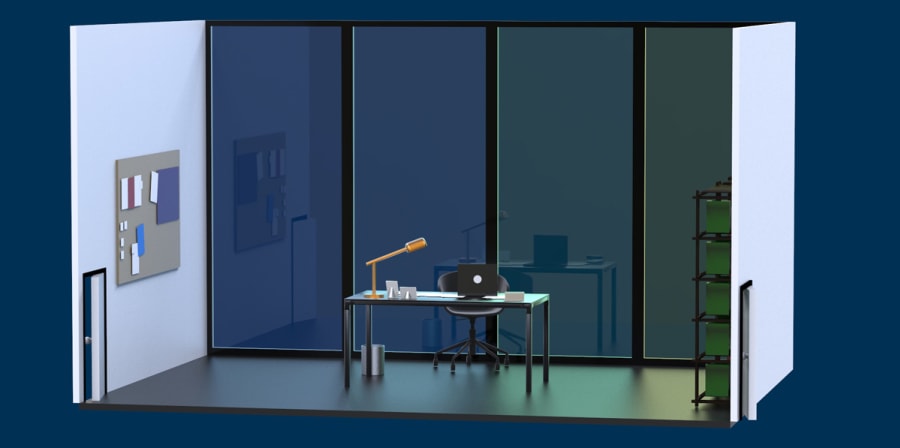
By taking action to hold the government accountable they expect to support others who are doing so in other ways, including Extinction Rebellion and the school strikes movement, who are changing the discussion around the climate emergency through acts of non-violent civil disobedience. The case has already attracted strong support internationally. World leading climate scientist, James Hansen, whose testimony to the US Congress in 1988 raised the global alarm on climate change, has said the case ‘could have a big impact on the whole global situation’.
Plan B has also rallied the help of students from LCC to work on an art installation which aims at raising public awareness of climate breakdown. The visuals and video installations will be displayed at ‘2030 All rise for the planet’, organised by Plan B at the Tate Exchange.
The show is designed to transport its audience in the year 2030 after scientists’ warnings were unheeded, and the consequences of the climate breakdown are then clear to all. The event will be a simulated trial that will determine responsibility for the ultimate crime against humanity and life on earth. The audience is invited to take full part in the adventure. While they reflect on their own position, they will also give testimonies and act as jurors. governments, industries, the media, NGOs, academia, art institutions, consumers and activists will all be called to the witness stand, where they must defend their actions in light of what they knew in 2019.
“Unless we tackle the climate emergency, human civilisation, not to mention the rest of the natural world, is at serious risk of collapse in the course of the coming decades. So, it should be a no-brainer.” — Tim Crosland, director of Plan B
Inspired by the concept of the Theatre of the Oppressed, Oliver, one of the LCC students contributing to the project, created an immersive installation comprising three themed rooms. His work allows the audience to engage with the issues of global warming, by inviting them to look at printed research materials and videos. The artist states that, while the public is desensitised to the moralising tones of global warming campaigns and to the recurring imagery of global warming and its plethora of images of disasters, there is a need for an alternative approach to provoke a critical reflection. There lies the potential of the installation, in the way it empowers its audience with truthful information. It catches their attention thanks to its ludic essence, and it opens a collective dialogue and creates a space for individual and group reflection.
Besides, there will be a video named “3959 days” displayed on two split-screens in the room. It is a participatory piece which aims to reflect on ideas of secrecy and the misinformation of the general public about global warming. According to Lisa Derand, director of the short film, the video was shot in the streets, and it invited random participants to read a short factual statement revealing something political, scientific, or of general knowledge about global warming. Often the statements focused on the complicity of a given institution with fossil fuel companies.
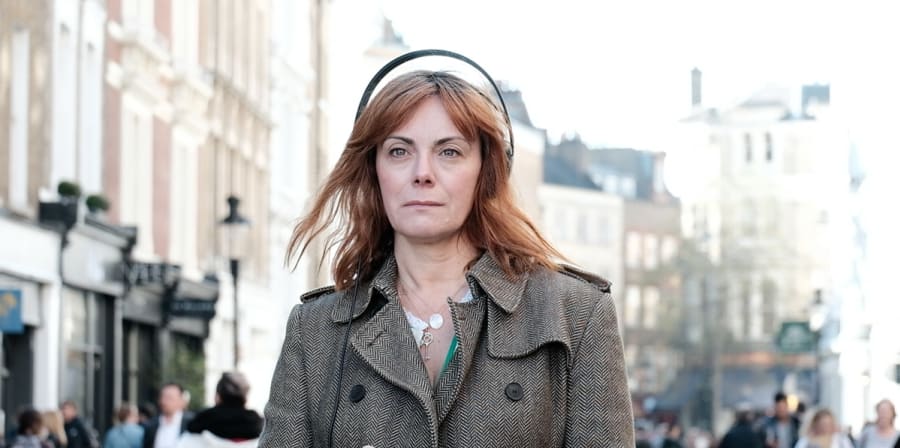
Preferring a subtle style over a politicised journalistic one, the installation shows the participants reading the statements silently. While one screen is a close-up and shows the facial expressions of the participants, the other one is a wide shot, capturing the movement of the street.
This dynamic between the close-up and the wide shot highlights the boundary between the individual and society, as the informed individual might have the power to create change in society and yet, as capitalist society leads the individual to conform to a neo-liberalist consumeristic ideology. “Our fast-modern society is perhaps best challenged in work through the slowness and the lack of action in the frames,” Lisa said.
The two-projection installation is accompanied by the sound of a computerised voice recording the statements and played on an external speaker. The choice of a monotonous computerised voice expressed people’s emotional detachment with the issue of global warming. There is also a constant clock sound in the room to create an anxious atmosphere and that signifies the urgency to take actions to tackle climate change.
The goal of the exhibition is to put the Establishment on trial. Everyone will be involved from oil companies, politicians, academics, to institutions and even consumers. Plan B and the exhibitors believe that climate change is a serious issue, which concerns the future of all of us. “Everyone should be able to follow it. Thus, the trial will be an event open to all and live-streamed all over the world”, Tim concluded.
Words by Danyang Zheng for Visible Justice.
Visible Justice takes place at London College of Communication from Wednesday 17 April to Friday 3 May 2019, and is free and open to all.
- Find out about London College of Communication's Media School
- Explore events at London College of Communication
- Follow LCC on Instagram to see behind-the-scenes at the College
